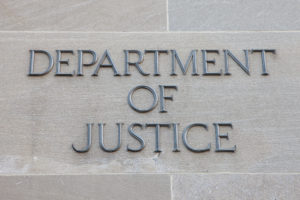Key Takeaways from DOJ’s Annual FCA Recoveries Press Release
 Every year, the Department of Justice (DOJ) issues a press release disclosing its recoveries in False Claims Act (FCA) actions for the past fiscal year. It is something of a victory lap for DOJ, leading with a big number and providing some details about select cases. Although the top-level figure means little, lessons can be gleaned from this annual tradition. This year’s release is no different.
Every year, the Department of Justice (DOJ) issues a press release disclosing its recoveries in False Claims Act (FCA) actions for the past fiscal year. It is something of a victory lap for DOJ, leading with a big number and providing some details about select cases. Although the top-level figure means little, lessons can be gleaned from this annual tradition. This year’s release is no different.
- DOJ recovered more than $3 billion in affirmative civil fraud cases and government investigations in FY 2019. This is up from $2.8 billion in FY 2018. What is more interesting is that, of that number, $2.6 billion, or approximately 87% came from the healthcare industry, mostly from Medicare fraud. . It is the tenth straight year that civil healthcare fraud recoveries have exceeded $2 billion. So much for any hope that DOJ would find a new favorite target.
- Qui tam filings by whistleblowers continued their downward trend. Relators filed 633 qui tam suits in FY 2019, down from 645 in 2018, 669 in 2017, and 702 in 2016. That represents a 10% drop over four years. The Supreme Court’s 2016 decision in Universal Health Servs., Inc. v. United States ex rel. Escobar, 136 S. Ct. 1989 (2016), which set a high standard for materiality in FCA cases, makes it particularly difficult for whistleblowers to pursue their claims if the United States declines to intervene. This, coupled with expanded and improved compliance programs, may be contributing to the decline in filings.
- Two of the largest recoveries of FY 2019 were, not surprisingly, opioid cases. Insys Therapeutics and Reckitt Benckiser Group paid big money to settle kickback, medical necessity, and patient safety claims. Opioids continue to be a high priority at DOJ.
- Two of the highlighted whistleblower cases originated here in Nashville. One, an EHR kickback case against Inform Diagnostics, I worked during my time as an Assistant U.S. Attorney. It was the eighth largest FCA settlement in the country in FY 2019. Keep following our blog for more EHR news in the coming days. The second, against Vanguard Healthcare LLC, resulted in an $18 million settlement to resolve allegations of grossly substandard nursing home services, and $250,000 paid by two individuals in addition to the corporate settlement. Tennessee providers should know that the Middle District of Tennessee continues to invest significant resources in affirmative civil cases and punches above its weight class.
- Finally, Duke University paid $112.5 million for allegedly submitting materially false grant applications and progress reports. This was a significant recovery against an academic institution and shows the importance of compliance in any field where federal funds are at issue. Healthcare may be the most popular industry for FCA enforcement, but DOJ recovers millions of dollars every year in government procurement fraud cases involving, inter alia, alleged construction fraud, transportation fraud, and education fraud.
Tennessee providers should know that the Middle District continues to invest significant resources in affirmative civil cases and punches above its weight class.
We continue to monitor developments in the FCA space. Subscribe to the SRVH blog for further updates and contact our Government Compliance & Investigations group with any questions..
Photo By Mark Van Scyoc from Shutterstock





